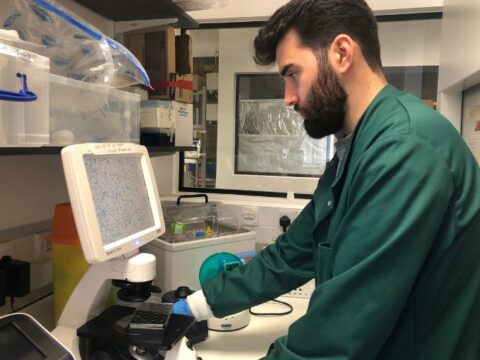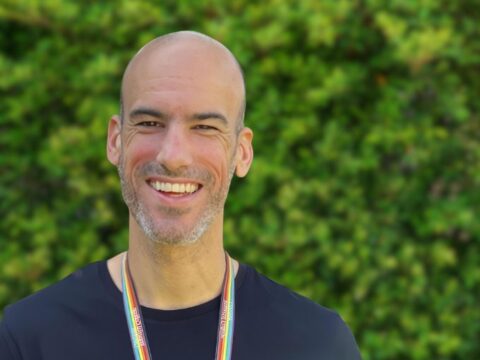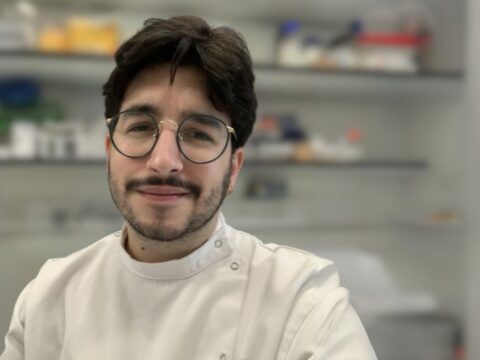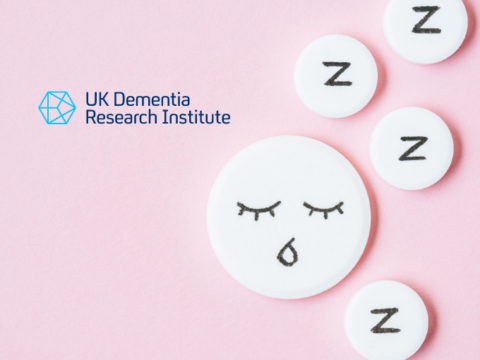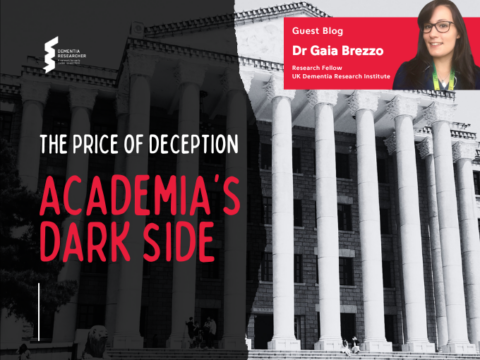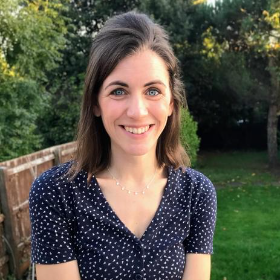
Pippa Kirby
Name:
Pippa Kirby
Job title:
Speech and Language Therapist / Pre-doctoral Clinical Research Fellow
Place of work / study:
Imperial College Healthcare Trust / Imperial College London
Area of Research:
My usual work is as a speech and language therapist (SLT). As a clinician I became interested in how we empower and involve patients with communication difficulties in conversations and in decision making, and I am now taking that interest into research. I am completing a pre-doctoral research fellowship at the Care Research and Technology Centre – one of the centres of the UK Dementia Research Institute, at Imperial College London. The team are developing smart homes for people with dementia, and I am interested in how we can best explore and understand the perspectives of people with dementia, and involve them in the research.
How is your work funded?
Imperial Health Charity and NIHR Imperial Biomedical Research Centre funded pre-doctoral fellowship
Tell us a little about yourself:
I’m an English graduate turned speech and language therapist and aspiring clinical academic. If you’d asked me a few years ago I might have mentioned leisure pursuits such as travelling, cooking, hiking, taiko, yoga. But I’m now a mum of two pre-school age children so my spare time is fairly non-existent and my cooking consists mainly of beans on toast. But luckily I also enjoy weird and wonderful conversations with three year olds, and toddler paced walks at the beach.
Why did you choose to work in dementia?
In adult speech and language therapy a lot of attention is given to those who have had strokes or brain injuries, or those with progressive neurological disorders like MS, Parkinson’s or motor neurone disease. Less attention is given to those with dementia – often SLT services are commissioned only to manage dysphagia (swallowing difficulties) in this population and not to address communication needs at all. As a newly qualified speech and language therapist I found it difficult being told I could only see people with dementia to assess their swallow, when I saw such obvious communication difficulties and no support being given for these. This is starting to change, but it’s a slow road.
What single piece of advice would you give to an early career researcher?
I’m so early on in research myself that I don’t feel qualified to give any advice really. But the thing that is helping me most as I start out in research is having a fantastic mentor and supervisors: in particular this has helped me make the transition from working as a clinician in the health service into a research role, where the pace, the pressures and the challenges are so different.
What book are you reading right now? Would you recommend it?
Unashamedly Robert Galbraith’s ‘The Ink Black Heart’ – the latest in the Strike series… I’m a big fan of these, pure enjoyment and easy reading after a long day’s work and parenting.

 Print This Post
Print This Post